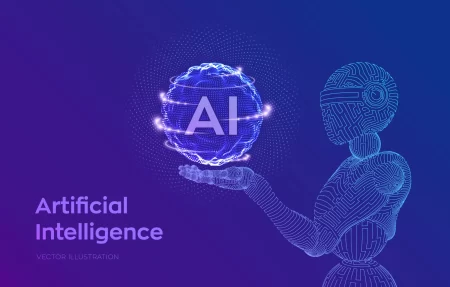 Artificial Intelligence (AI) has become an integral part of our lives, revolutionizing industries and transforming the way we interact with technology.
Artificial Intelligence (AI) has become an integral part of our lives, revolutionizing industries and transforming the way we interact with technology.
With its rapid advancements, AI offers tremendous potential, but it also raises concerns and challenges.
Today, we will explore the pros and cons of AI, shedding light on the multifaceted impact it has on our society.
Pro: Enhanced Efficiency and Automation
AI systems excel at performing repetitive and mundane tasks with remarkable precision and speed. This capability translates into increased efficiency and productivity across various sectors, freeing up human resources to focus on more complex and creative endeavors.
Industries such as manufacturing, healthcare, and customer service have witnessed significant improvements in operations and cost-effectiveness through AI automation.
Con: Job Displacement and Skills Gap
While AI’s automation benefits are undeniable, they also pose challenges in terms of job displacement. As AI takes over routine tasks, there is a growing concern about the potential loss of employment opportunities for certain sectors of the workforce.
To address this issue, it is crucial to prioritize reskilling and upskilling programs to bridge the skills gap, ensuring that individuals are equipped with the abilities needed to thrive in an AI-driven world.
Pro: Data Analysis and Decision Making
AI algorithms excel at analyzing vast amounts of data, extracting patterns, and providing valuable insights. This capability empowers businesses to make data-driven decisions, leading to enhanced efficiency, improved customer experiences, and increased profitability.
In fields such as finance, marketing, and cybersecurity, AI-driven data analysis has become a game-changer, enabling organizations to stay ahead of the curve.
Con: Ethical and Privacy Concerns
AI’s ability to process personal data and make autonomous decisions raises ethical and privacy concerns.
There is a need for robust regulations to ensure responsible AI deployment, protect individuals’ privacy and prevent algorithmic biases.
Transparency and accountability are crucial to address these concerns and establish public trust in AI technologies.
Pro: Medical Breakthroughs and Healthcare Advancements
AI has made significant strides in healthcare, enabling faster and more accurate diagnosis, personalized treatment plans, and drug discovery.
With AI-powered medical imaging and analysis, doctors can detect diseases earlier, leading to improved patient outcomes.
However, ethical considerations, data security, and potential biases in algorithms must be carefully addressed to ensure patient safety and privacy.
Con: Potential Security Risks and Unemployment
As AI becomes more sophisticated, there is a concern about its potential misuse. Cybersecurity threats, such as AI-generated deep fakes and autonomous hacking, pose significant risks to individuals and organizations.
Additionally, the possibility of widespread automation leading to high unemployment rates requires proactive measures to ensure a smooth transition and reintegration of the workforce.
Artificial Intelligence holds immense potential to transform our world positively, revolutionizing industries and enhancing our daily lives. However, we must also address the challenges it poses.
By prioritizing responsible AI development, fostering collaboration between humans and machines, and promoting inclusive policies, we can harness the power of AI to create a prosperous future that benefits everyone.
Picture Credit: Freepik
